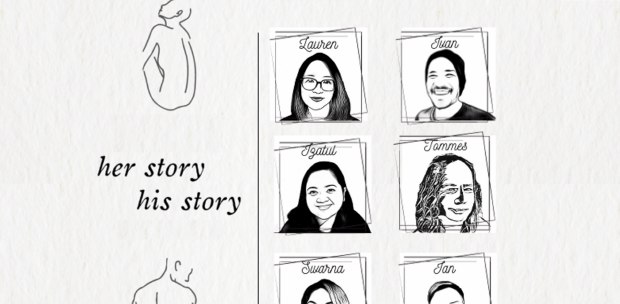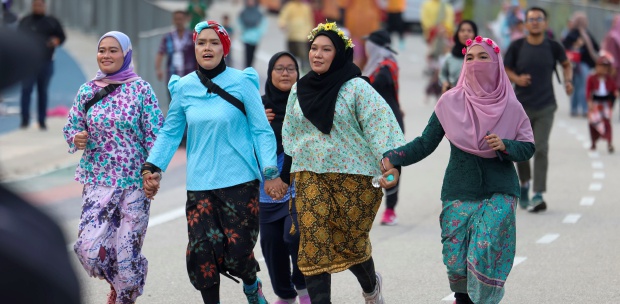"YAT pun gui lay do!" "Yat pun gui lay do!" The Japanese devils are coming! Everyone was frantically running and shouting in fear. As always, bad news travels fast. It didn't take long for the town to start getting jittery and panicky. Suddenly, it felt like the whole world was falling apart.
Before long, everyone started packing to move to the jungle. They had all heard of the terrible atrocities committed by the Japanese in China. The Rape of Nanking and the infamous Unit 731 struck fear in their hearts and minds. Nobody wanted to be a victim of the ruthless and merciless Japanese Imperial army.
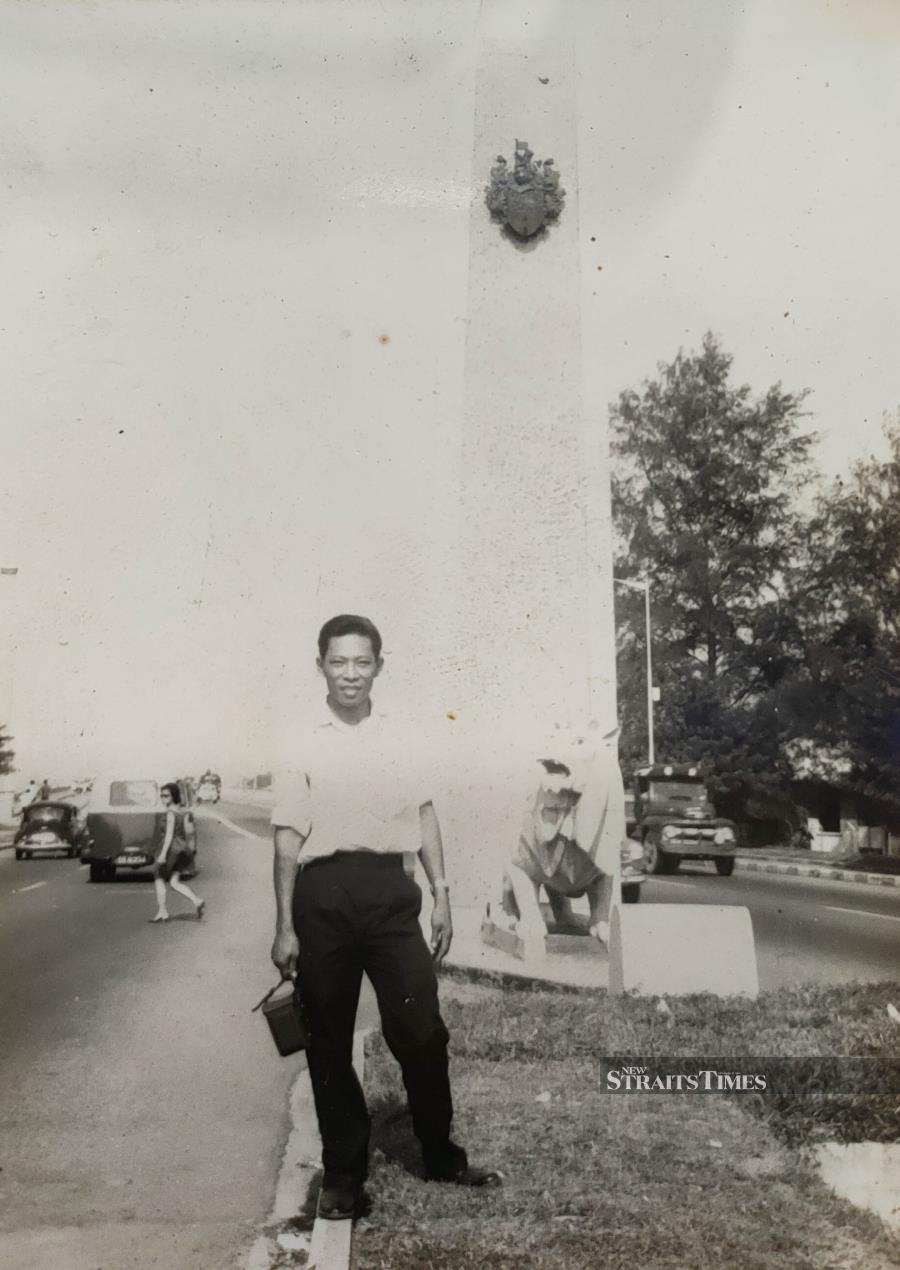
"Don't forget to take our ancestor tablet on the altar table!" my grandma tersely reminded my father whilst he was busy packing. Although the tablet was not heavy, the responsibility was. The Chinese place a heavy emphasis on ancestor worship.
This meant that father was tasked with looking after the destiny of the whole clan.
Unfortunately, he wasn't able to find any more space for the tablet in his gunny sack. Solemnly, father wrapped it up and tied it securely to his back. Silently, he fervently hoped that his ancestors' spirit would bless him and watch over his family during this period of grave danger.
MY GRANDPA'S TEAM
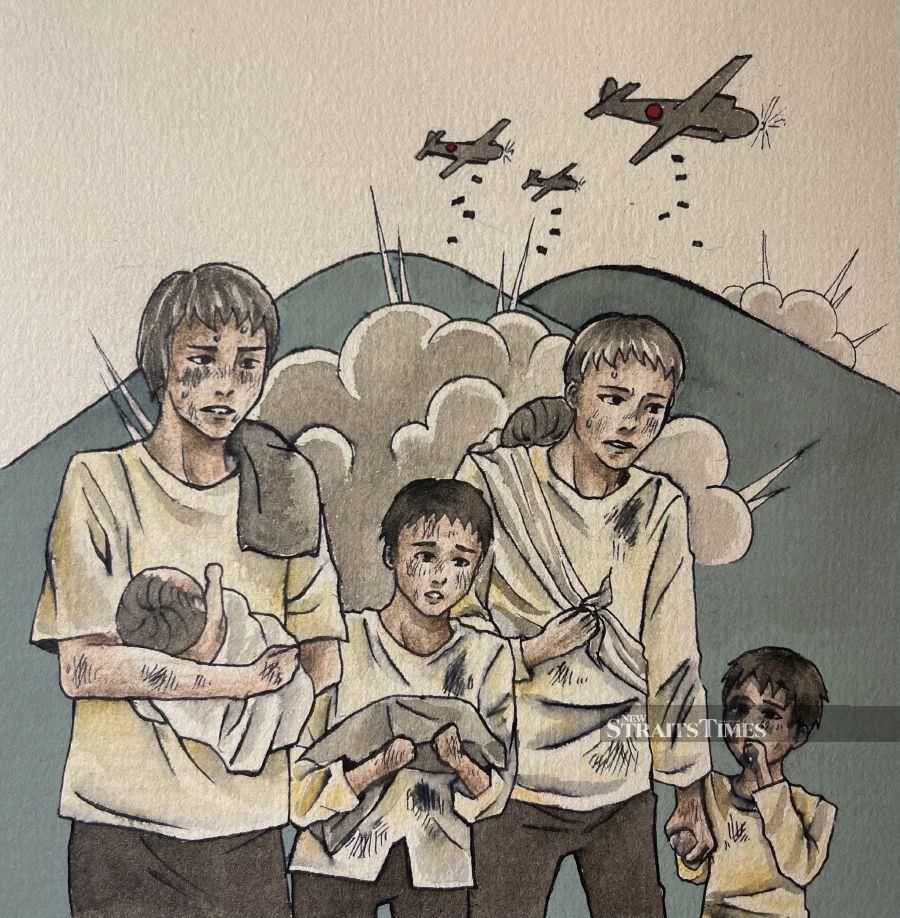
My grandparents had 13 children altogether. At the age of 12, father was among the oldest siblings. Reluctantly, all my aunts agreed to have their long hair cut short.
Some even went botak (bald). They were also made to wear boy's clothes too. They were aware of the terrible outcome should the hamsap (horny/perverted) Japanese lay their hands on them.
My grandparents wanted to bring along the chickens and ducks they had been rearing for years. They reckoned the fowls would provide some meat and eggs for the family during their stay in the jungle.
Soon, grandpa found himself busy chasing and catching them in the house compound. Somehow, the fowls could smell the fear and tension in the air. Feeling jittery, they flew and defecated all over the place.
When grandpa finally returned with some chickens and ducks in both hands, feather and faeces covered his hair and body. Worried about the loud quacking of the ducks, grandpa hurriedly brought them to the kitchen for my two young aunts to prepare them for dinner.
ANGRY KITCHEN GOD
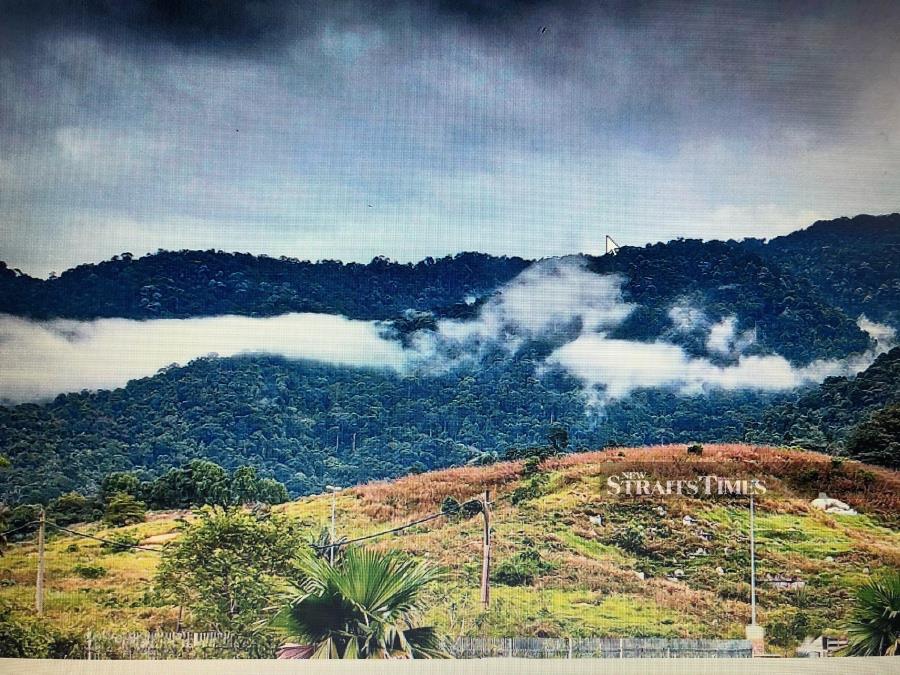
In their clumsy attempts, my aunts ended up making the ducks even more nervous. They flew around the kitchen violently and even broke the oil lamp of the kitchen god. It was not a good omen. Surely the god must be angry.
On hearing the commotion, grandma rushed into the kitchen and scolded my aunts: "Gai sao ngap geok" (butter fingers), before swiftly catching hold of the noisy ducks. She then proceeded to slice their throat, one by one.
Soon enough, the din subsided and calm was finally restored in the kitchen. My young aunts prayed hard for the kitchen god to simmer down too.
During dinner, father's younger siblings displayed their excitement at the prospect of moving to the jungle the next day. My then 6-year-old uncle excitedly asked grandpa whether they would get the chance to see tigers or elephants in the jungle.
His tone sober, grandpa replied wryly: "Let's hope we won't see any of them. You know, the jungle is not the same as your circus show."
A lengthy pause ensued before another question was posed. This time it came from my then 5-year-old aunt. Timidly, she questioned: "Papa, are there any ghosts or monsters in the jungle?"
But it was my grandma who replied first. Her tone sardonic, she said: "Don't worry. The Japanese are bigger monsters. They've probably chased all the ghosts and monsters away!"
Nodding, my father chimed in worriedly: "Where are we going to hide?" Grandpa's brows furrowed as he contemplated the question seriously. Then he replied: "There is going to be a battle between the British and Japanese in Kampar soon. We'll probably need to hide in the jungle behind Temoh cemetery hill instead."
SIU SUM, SIU SUM! BOMBS DROPPING OVERHEAD
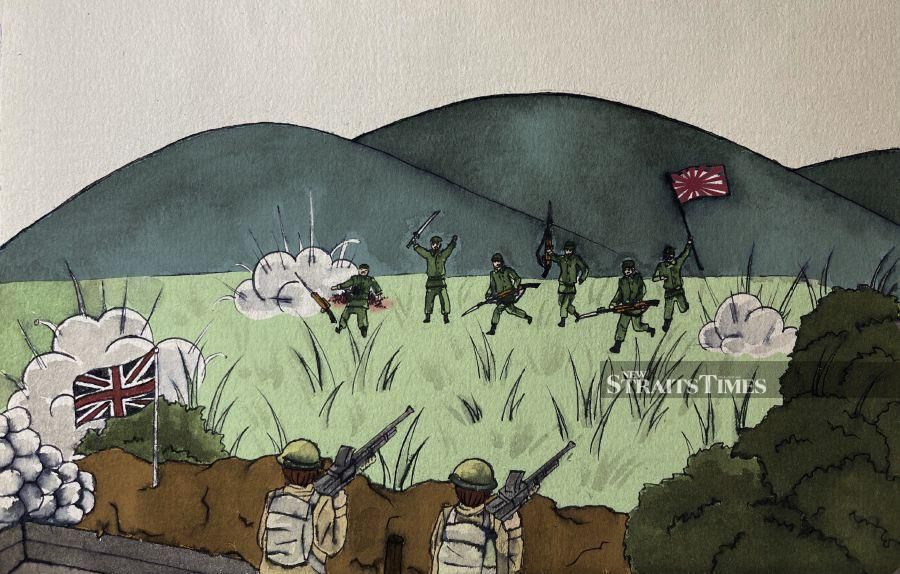
The next morning, after an early breakfast, everyone was ready for the big move. They all had something to carry in their hands. With his 13 children in tow, grandpa sighed long and hard, and shook his head worriedly.
There was no telling what their fate would be in the coming months. Gritting his teeth, he looked up slowly to the heavens to pray for some divine blessing and protection.
Walking briskly along, they could spot some Japanese planes approaching overhead. Before long, the planes started to drop bombs. The ground trembled as if it was hit by a giant earthquake.
Dust and plumes of acrid smoke began billowing everywhere. Some of the buildings caught fire while others were horribly damaged. There were also people killed.
Raising his voice, grandpa called out to everyone: "Siu sum, siu sum (be careful)!"
Father's younger siblings were frightened by all the explosions and commotion, which led to him tightening his grip. He truly feared losing his younger sister.
Upon reaching the foothill of Temoh cemetery, they suddenly heard distant sounds of airplanes slowly approaching. Father thought that perhaps it was the sound of ghosts warning them of impending doom and misery.
Fai chooi! Quickly hide!
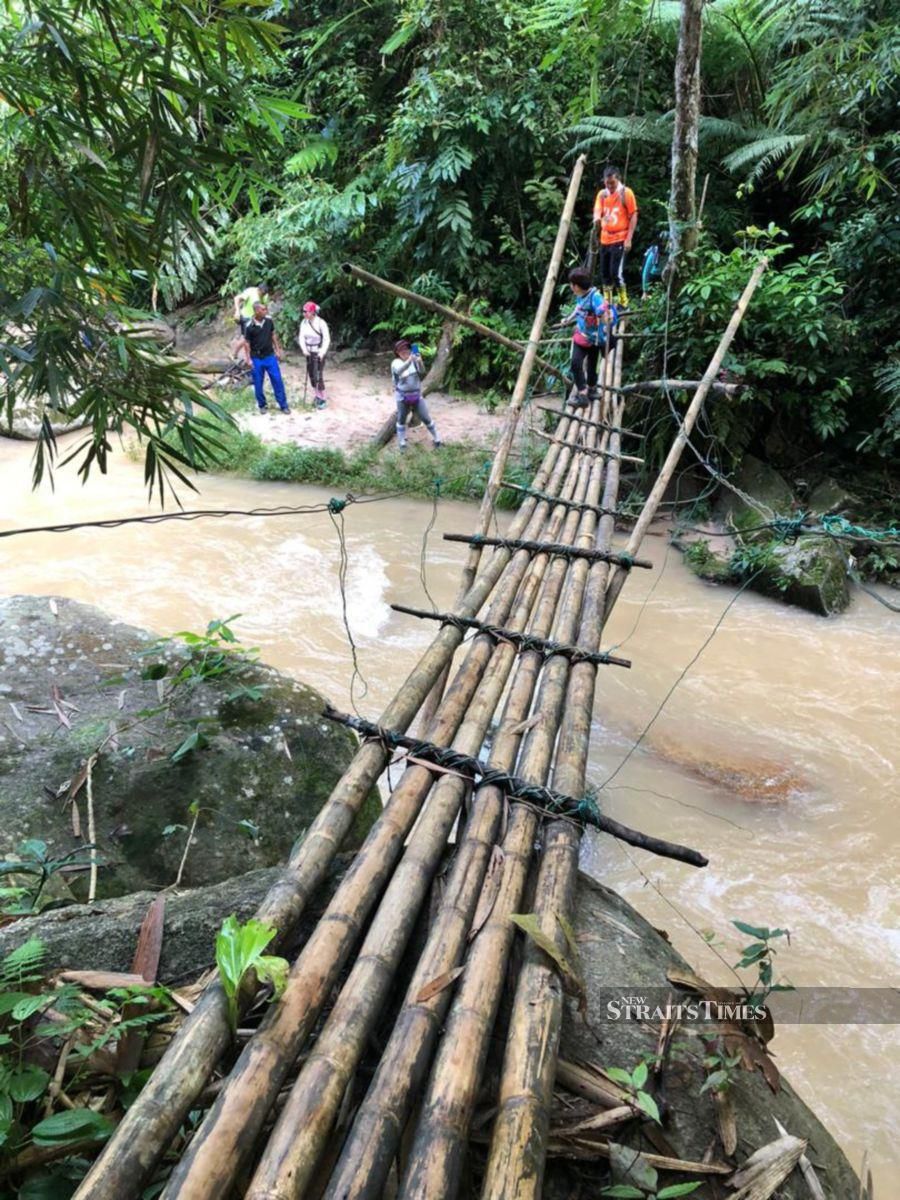
In their haste to climb up the hill, one of my uncles accidentally dropped his bag of rice. The content scattered everywhere on the grass. Father and his sister, Ling, stopped to pick up the rice, grain by grain, as if they were precious diamonds.
As the planes were approaching, grandpa worriedly shouted at them: "Fai chooi! Quickly, go and hide in the bushes!" However, father and Ling refused to abandon the rice on the grass, knowing full well just how precious they were.
Angrily, grandpa rushed towards them before grabbing them and putting each one under his armpit before charging back to join the rest, who were already hiding in the thick bushes.
The Japanese planes swept low and fired several rounds which fortunately missed them. Although the bullets failed to strike anyone, it still managed to strike fear into their hearts.
STARRY NIGHTS. . . SCARY NIGHTS
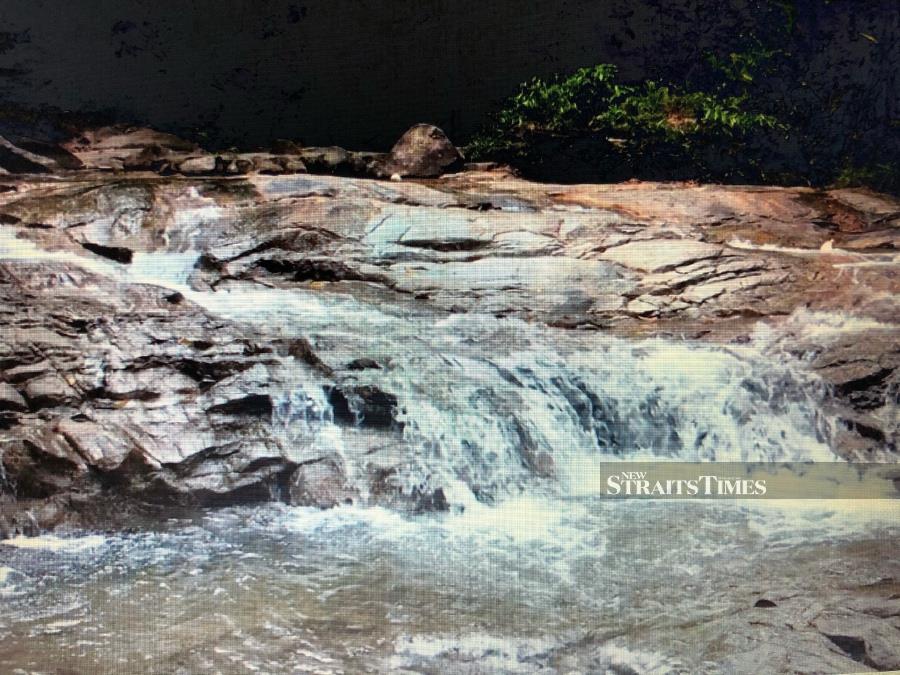
Over the next couple of days, they had to climb steep hills and cross fast-flowing rivers and waterfalls. Along the way, they caught sight of the footprints of tigers and elephants on the river banks.
They also came across giant trees and peculiar-looking plants. After what seemed like forever, they finally found a small cave which appeared ideal enough for them to settle down.
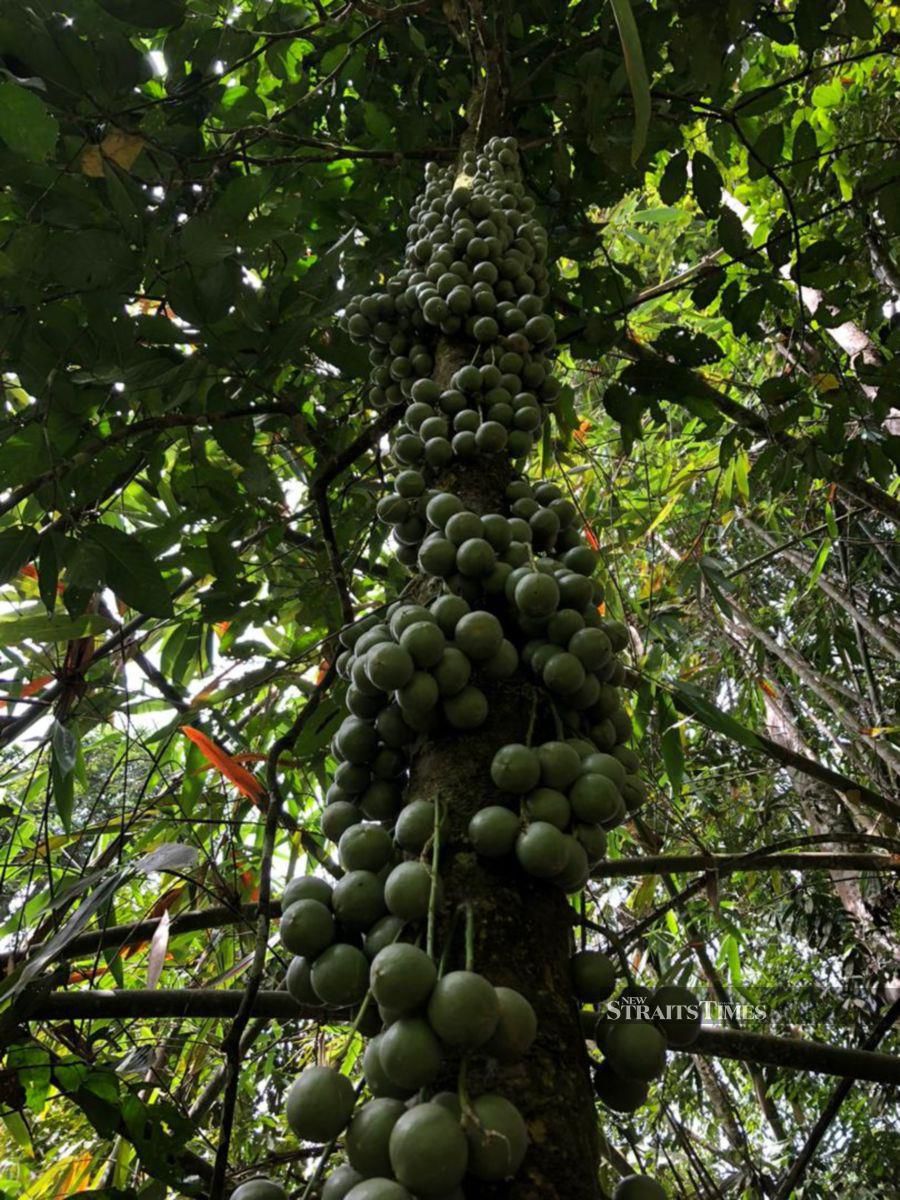
The cave was a forbidding and foreboding environment for everyone. Meanwhile, the nights and its inky darkness were terrifying. They had to ensure that they remained in the dark, too scared to light their lamps for fear of alerting any passing Japanese patrol.
Every night, the children had trouble sleeping. Some felt that the cave structures resembled demons and monsters. The deafening cacophony of insects calling also didn't help.
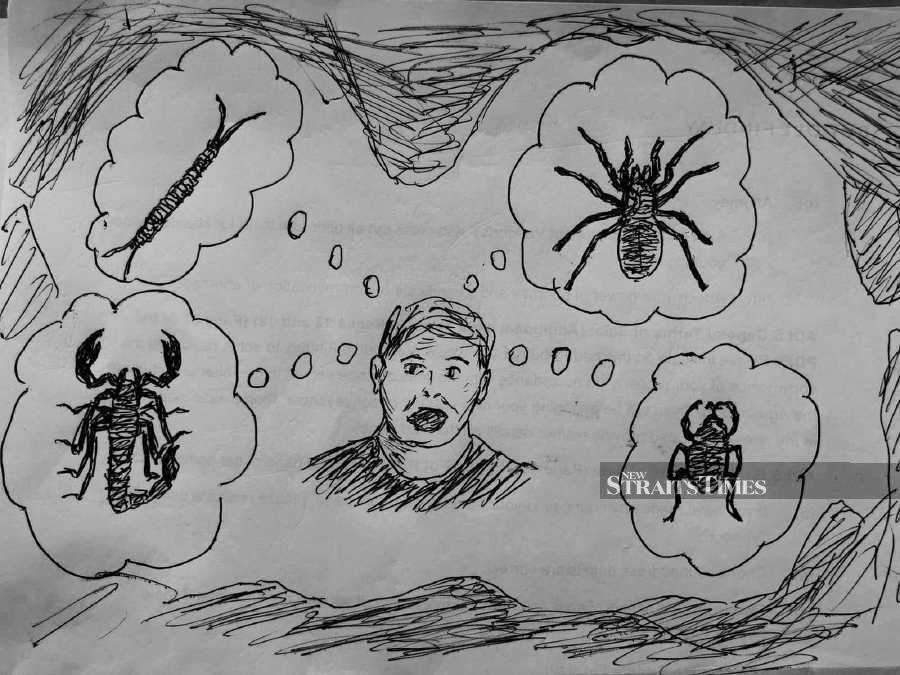
The children's imagination soon went into overdrive and some of my timid aunts would often find themselves whimpering. They would huddle together for warmth and also protection from the cold — and demons.
Every day, they would spot all kinds of strange-looking insects and creatures that flew or crawled into their cave. In addition to the giant spiders, scorpions and rhinoceros beetles, there were also many cobras, centipedes and millipedes. Once, an aunt mistook a centipede for a millipede. She was bitten and her hand was badly swollen for a week.
There were nights when they could hear tigers roaring nearby. The young ones would cry often due to hunger and sickness. The darkness and tiger roars made it worse for them.
PRECIOUS PEARL DIMMED
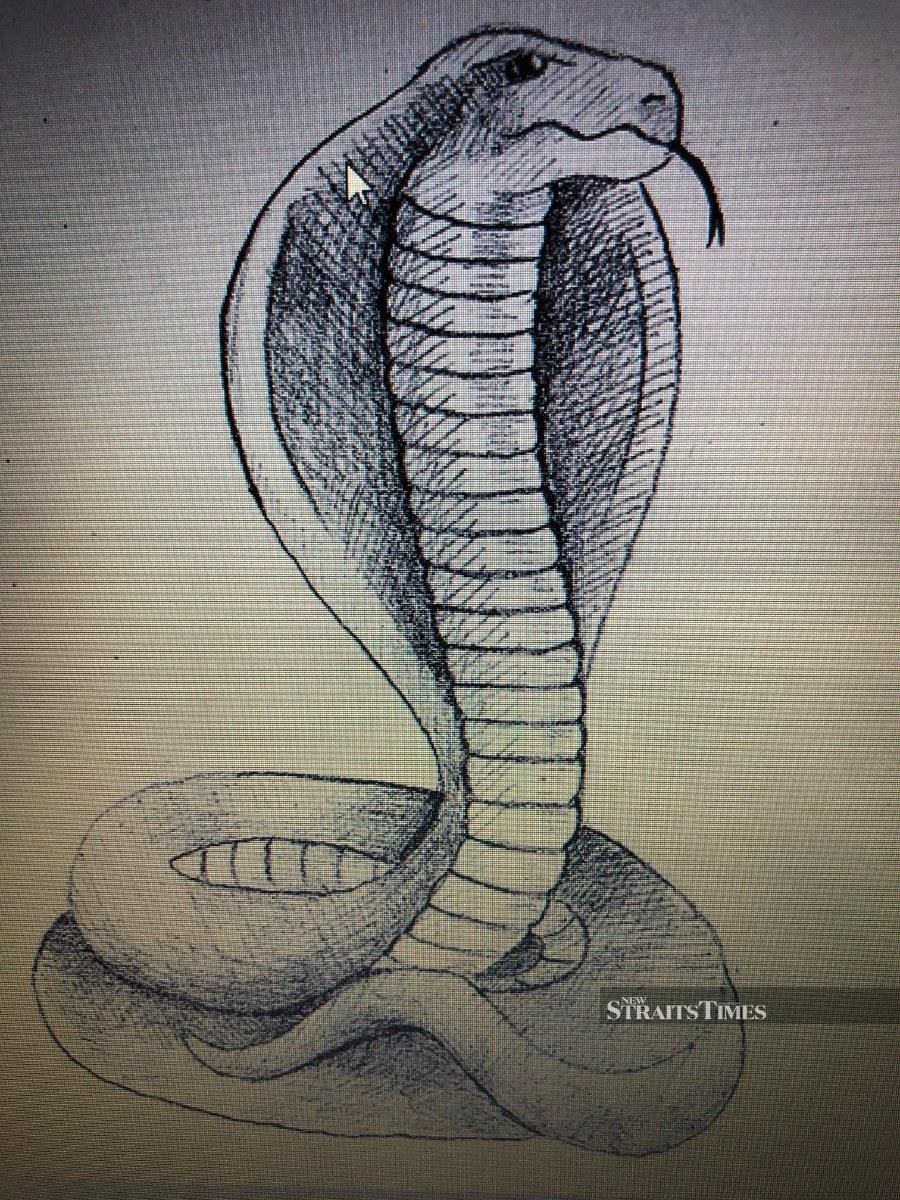
My grandparents named my youngest 1-year-old aunt, Poh Choo, meaning precious pearl. Cute and cuddly, she would giggle and laugh all the time, even during her sleep.
Baby Poh Choo's laughter was infectious. She brought so much joy and happiness to everybody around her. Everyone loved bouncing the sarong (spring cot) and singing lullaby to put the baby to sleep as she clutched her favourite pink blanket.
One day, however, baby Poh Choo stopped giggling. Silent and sulky, she was frowning deeply and staring blankly into space, as if pondering her fate to come.
The next day, she developed a high fever and cried loudly day and night. Everyone was worried for her health. They were also deeply concerned that her cries might attract passing Japanese patrols.
Although Poh Choo couldn't speak, everyone knew she must have been suffering great pain. Thinking that it was some evil spirits in the cave, grandma lit some joss sticks to ward them off while chanting "Amitophat". The evil jungle mosquitoes must have brought malaria to their baby.
After a fortnight of fighting bravely for her dear life, baby Poh Choo finally succumbed. It was the longest night for the whole family. No one could sleep. Forlornly, they kept staring at their baby's lifeless body as it turned slowly cold and pale in the misty night of the jungle.
Tears flowed down everyone's cheeks. No one could muster anything to say, such was their despair. They were all truly devastated and overwhelmed with grief.
Grandma was weeping and beating her chest. She regretted allowing everyone to call her baby Poh Choo precious pearl. Had they called her Choo instead, she believed that the baby would have been alive. In Chinese, choo meant pig. It's the belief that evil spirits would only harm precious babies and not animals.
THE WATERFALL AND BANYAN TREE
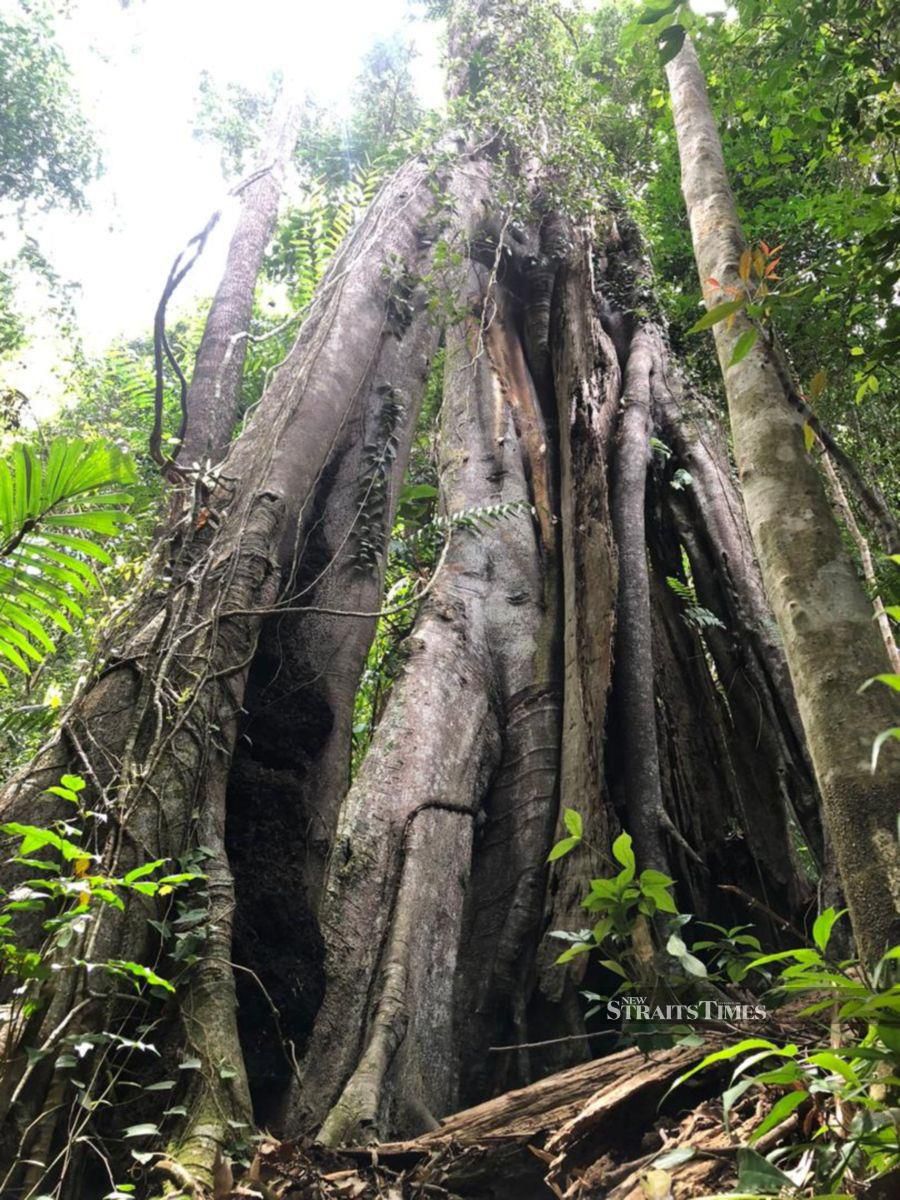
Early the next morning, grandpa carefully chose a grave site with good fengshui for their beloved baby Poh Choo. Overlooking a waterfall, it was located under a banyan tree, which offered some shade to protect their baby from the sun and rain.
Their heads bowed and hearts, heavy, everyone in the family turned out to pay their last solemn respects to Poh Choo. My aunts were all blubbering away in tears. However, in accordance to Chinese custom, my grandparents were not present. It is said that parents are not allowed to send off their young offspring in their final journey on earth. It must have been heart-wrenching for them.
When father saw baby Poh Choo for the last time, she appeared to be sleeping peacefully. They ensured that her body was wrapped in her favourite pink blanket. Although her body felt cold to his touch, he knew in his heart that her spirit was warm.
The dark clouds that had started to gather overhead added to the sombre mood of the morning. Even the heavens seemed to be feeling sad. After father had slowly placed his baby sister into her carefully dug up grave, his siblings took turns to grab some earth and throw into it.
This was the final gesture of farewell to their baby sister. Father held a big lump of earth in his fist. But the lump in his throat was even bigger. He was devastated.
As father shoved the last changkol of earth into his sister's grave, he could not hold back his tears any longer. He felt a sharp pain piercing his heart. Father had never cried like this before in his life. It was tears that came not just from his eyes. They came from deep within his heart.
It was at this moment that the sky also decided to open: It started to rain. For the family, it was surely a sign that the heavens too were crying for baby Poh Choo.
They prayed for the gods to take pity and bless the little baby. Everyone looked up towards the sky and prayed that their baby sister's spirit would rise up and enter heaven.
On the same night of Poh Choo's burial, father and his siblings saw a shooting star streaking across the clear dark sky. Grandpa told everybody that it was a sign that their dear baby sister had returned to heaven.
Over the next few nights, father had dreams of baby Poh Choo in his sleep. He saw his baby sister smiling and waving at him from up in heaven. She seemed to be telling him to stay strong.
Meanwhile, the war had just started. Everyone knew deep in their hearts that it would certainly be a long and hard struggle for them in the unforgiving jungle.
Gary Lit Ying Loong is a retired academic from Nanyang Technological University (NTU) Singapore. He's presently a visiting professor to some universities in Asia and Europe. Reach him at [email protected].



